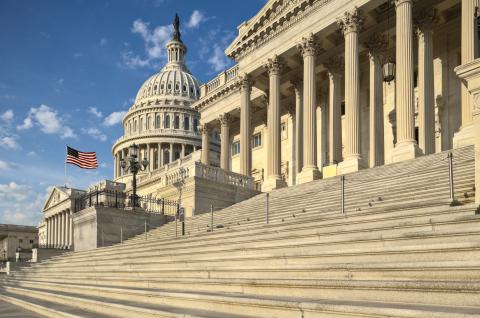These stories spotlight the work that SSN members have done to advance research-based policymaking in communities across the states.
SSN Member Spotlights

Julia Sass Rubin Challenges New Jersey's County Line
"There’s always luck involved in the right factors coming together to create a policy window. I think as a researcher, all you can do if you're passionate about an issue is do the work and get it out there so that people know it exists." - Julia Sass Rubin, Rutgers University

L.J. McElravy Advocates for Compromise in Nebraska
“The more we can tangibly see people working together, the more hope and optimism we have that that can function. It feels like the more removed we are or the more removed our leaders are, the more abstract it gets and the more we're allowing other sources of information to influence our perceptions.” - L.J. McElravy, University of Nebraska, Lincoln

Rebecca Newman Speaks Out About Academic Suppression in Florida
"[My] advice to faculty in other states would be, if you're sitting there and you're thinking, this cannot happen to you, it can absolutely happen to you and you need to be awake and you need to be paying attention to these issues because we were kind of asleep in Florida a little bit." - Rebecca Newman, Valencia College

Tejas Narechania Advocates for Tech Governance Through Public Comments
“I think public comment opportunities are a really good way to try to highlight the work that you’ve done, bring it to a larger audience, and especially, bring it to an audience that is likely to care about the work and do something about it.” - Tejas Narechania, University of California, Berkeley

Todd Swanstrom Addresses the Need for Home Repairs in St. Louis and Beyond
"The research completed by Professor Swanstrom and his team allowed the Home Repair Network to jumpstart a lot of the work that we aim to do over the next several years." - Constance Siu, Executive Director, North Newstead Association

Saria Lofton Advocates for Food is Medicine Programs in Illinois
“[The policy memo] helped to elevate our message to our colleagues in the food is medicine space here in Illinois, [leading] to opportunities for further advocacy in the space.” — Saria Lofton, University of Illinois, Chicago

Kristina Bohdanova Brings Proactive Mental Health Care to Ukrainians
“We see Sane Ukraine's work as preventative against PTSD, depression, anxiety, and all the outcomes of prolonged traumatic stress.” - Kristina Bohdanova, Ukraine Catholic University

Niki vonLockette Builds Relationships at White House Event
“SSN’s workshop was really valuable to me in that it concretized the process of building these relationships, breaking it all down into small tasks." - Niki vonLockette, Penn State University

Peter Jones Helps Change Alabama's System of Fines and Fees
“I don't think we could have gotten the bill over the finish line without [Jones’s] contribution.” - Leah Nelson, Research Director at Alabama Appleseed

Welcoming SSN's 1800th Member: Hanne Hoffmann
"SSN provides me with a network of experts who can help me successfully initiate and build relationships with state representatives, allowing me to provide the scientific basis for bills associated with my expertise." - Hanne Hoffmann, Michigan State University

Ken Kolb Collaborates with Local Newspaper for Award-Winning Series on Gentrification
“Ken’s work was absolutely essential to the Greenville News project…It was a great illustration of how academic research can reach out from campus and have a ripple effect across the entire community.” - Fred Clasen-Kelly, investigative reporter

Neda Maghbouleh on Improving the U.S. Census
“I connected with SSN’s Neda Maghbouleh, after finding her published research on this topic. Her scholarship is helping us move toward our goals of using inclusive and relevant race and ethnicity categories in our work." – Fernando De Maio, Vice President of Health Equity Research and Data Use

Earl Smith on Concussion Care for Victims of Domestic Violence
“Conceptualizing health care, especially in the emergency department, as a site of primary intervention in intimate partner violence would save lives and improve the health and well-being of all communities across the U.S.” - Earl Smith, University of Delaware

Michael Haedicke and Jean MacRae on Regulating Forever Chemicals
“Attention moves on so quickly. To maintain relationships and to have a presence in the policy world, you have to be always coming to the table with a statement. You need to be there constantly, pumping things out or doing interviews.” - Michael Haedicke, University of Maine

Roy Chan on Improving Free College Programs
“Tuition-free programs must remain accessible and affordable for all types of students and should be designed with a promise to reduce the national student debt and the cost of college attendance in American society.” - Roy Chan, Lee University

Zoltan Hajnal’s Years-Long Push for On-Cycle Elections
“The easiest, most politically viable, and most effective way to expand turnout and make local democracy more representative is to shift the timing of local elections so that officials in cities and suburbs are elected at the same time as presidents, governors, and legislators, at times when voter interest and turnout is at a peak.” - Zoltan Hajnal, University of California, San Diego

Andrew Pendola On Solving the Teacher Shortage
“Teachers do not leave the classroom because of low salary; they leave because they feel undervalued. They do not leave because of the students; they leave because of conflicting expectations that make it difficult, if not impossible, to serve them. To improve teacher retention and curb shortages, Alabama educators and policymakers must enact policies that address the root of teacher dissatisfaction.” - Andrew Pendola, Auburn University

Johnny Rice II on Protecting Violence Interrupters
“To address violence in urban communities we must first invest resources, financial and human capital, in the most violent and historically under-resourced communities in the United States.” - Johnny Rice II, Coppin State University

Jamie Abrams Shares Personal Story to Spotlight Healthcare in a Post-Roe World
“In the aftermath of Roe’s being overturned, supporters of the move want to pretend that abortion access can be surgically extracted from women’s health care decision-making as a whole. Nothing could be further from the truth.” - Jamie Abrams, American University

Lara Perez-Felkner Tackles Inequality in STEM Education
“In order to best support STEM students, and especially, to help underserved students thrive in these programs and open the door for high-paying careers, university leaders should take deliberate steps forward to adjust the course requirements and supports that are in place.” -Lara Perez-Felkner, Florida State University

Lee Hasselbacher Testifies for Repeal of Parental Notice Law
“Our research and that of others reveals the complicated lives of pregnant young people and suggests that they are the ones best able to identify the people in their lives who can help them make decisions about a pregnancy.” - Lee Hasselbacher and Catherine Hennessey, University of Chicago.

Winifred Tate Advocates for Drug Policy Reform
“The need for expanding the Good Samaritan law is urgent. To stem this grim tide of death, we must do more, and we must empower everyone, especially those most likely to witness overdose deaths, people who use drugs and their loved ones, to keep people alive.” - Professor Winifred Tate, Bangor Daily News

Jamila Michener on Addressing Racial Inequities
“Access to high quality, affordable health care offered to all, in ways that convey dignity and respect, has great potential to amplify the voices of those who are most economically and racially marginalized in American society, to build their power, and to create a more robust democracy.” - Jamila Michener, Cornell University

Michael Kraus on Talking about Racism in America
“Real progress toward racial equity in the United States must be based in an American public with a more accurate conception of the complex and constant role of race and racism in our nation.” - Michael Kraus, Yale University

Harris Solomon Sheds Light on the COVID-19 Pandemic
“The administration needs to send test kits and masks to every American household…mailing masks and test kits is not rocket science. It will save lives. And compared to the costs of an ongoing pandemic, it will cost pennies on the dollar.” - Harris Solomon & Martha Lincoln, Washington Monthly

Sally Kenney Highlights Gender Inequality in Courts
“Without a judiciary as diverse as the country it judges, litigants cannot help but question the quality of justice as they stand before a bench that excludes citizens like themselves.” Sally Kenney, The Hill

Sarah Verbiest Advocates for Medicaid Extension
“Without access to care, women and their families have to suffer through these challenges which can impact maternal, infant, and family well-being as well as work productivity for both parents,” - Sarah Verbiest, University of North Carolina, Chapel Hill, and Belinda Pettiford, Department of Health and Human Services.